I am looking for a way to separate those object list that they don't have any number in "n_version1" more than 10. can you help me?
the output should be same as below:
I tried to sum n_version1 column in HAVING but it was not correct way. I am using Pl/SQL, oracle 9i.

